48+ Sample Agent Agreement
-
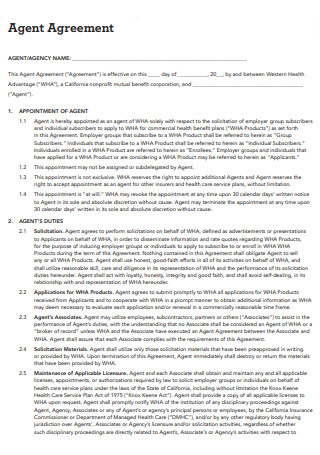
Agent Agreement Template
download now -
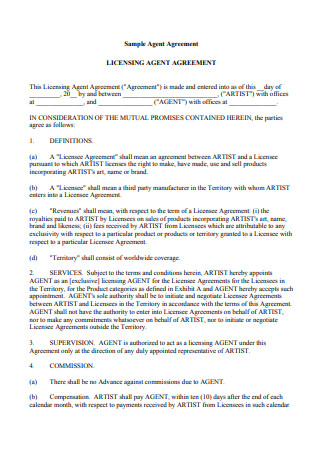
Sample Agent Agreement
download now -
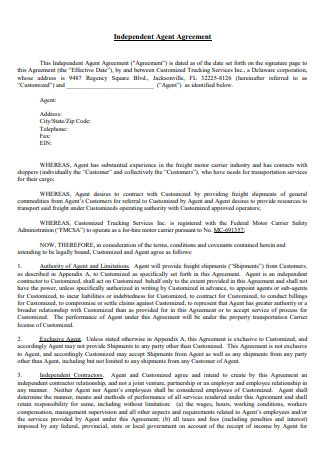
Independent Agent Agreement
download now -
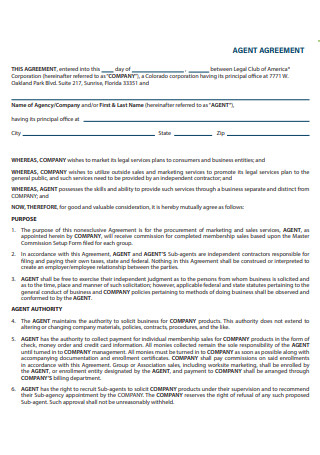
Basic Agent Agreement
download now -
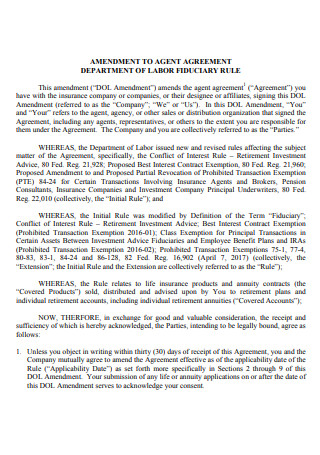
Amendment to Agent Agreement
download now -
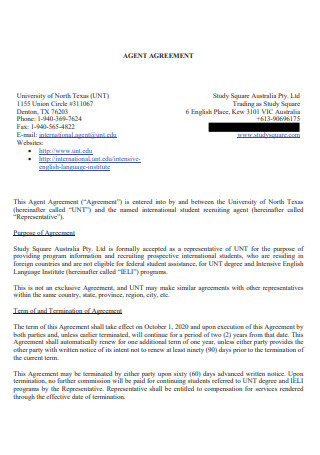
Standard Agent Agreement
download now -
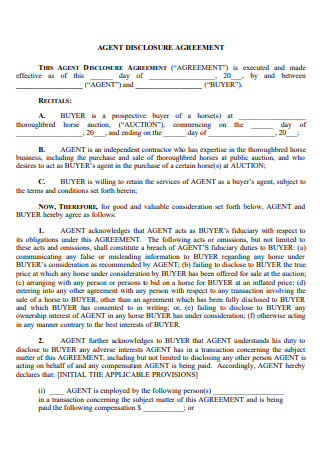
Agent Disclosure Agreement
download now -
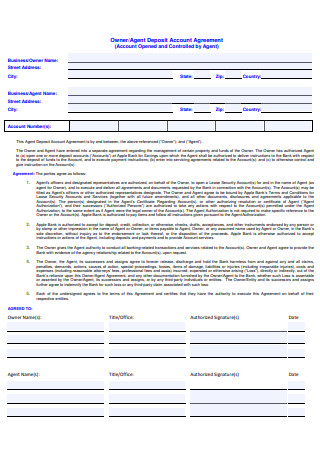
Agent Deposit Account Agreement
download now -
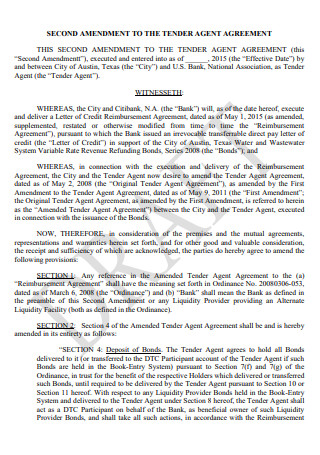
Draft Agent Agreement
download now -
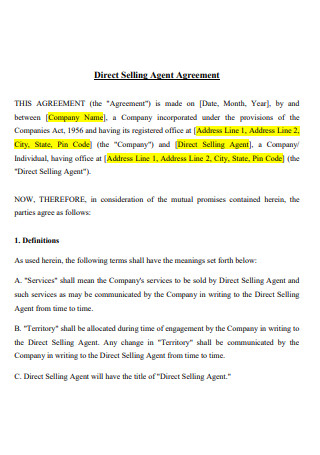
Direct Selling Agent Agreement
download now -
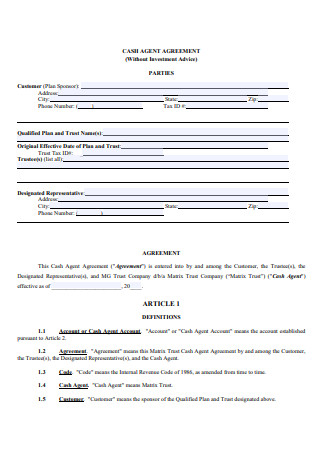
Cash Agent Agreement
download now -
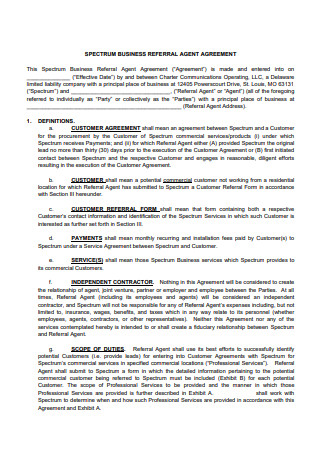
Business Referral Agent Agreement
download now -
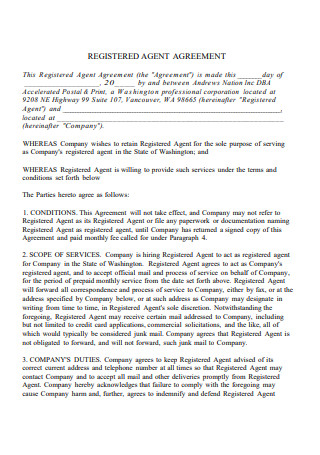
Registered Agent Agreement
download now -
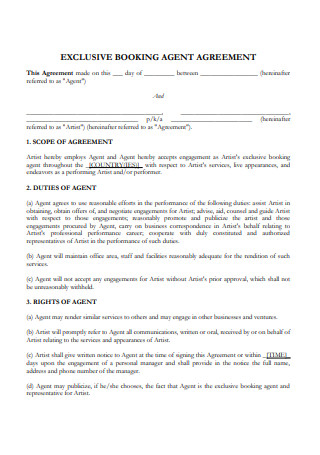
Exclusive Booking Agent Agreement
download now -
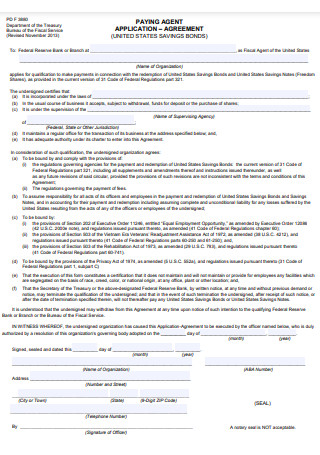
Agent Application Agreement
download now -
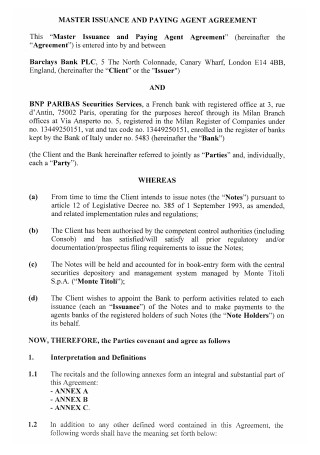
Paying Agent Agreement
download now -
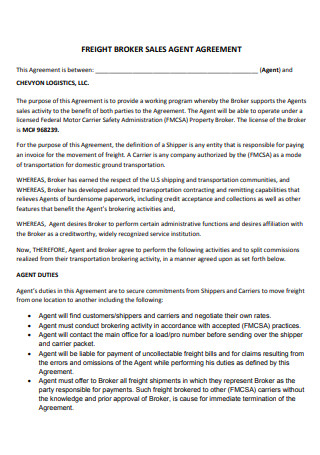
Broker Sales Agent Agreement
download now -
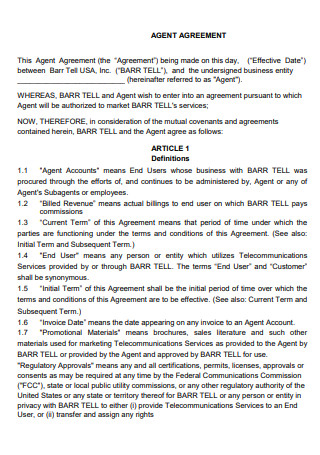
Agent Agreement in PDF
download now -
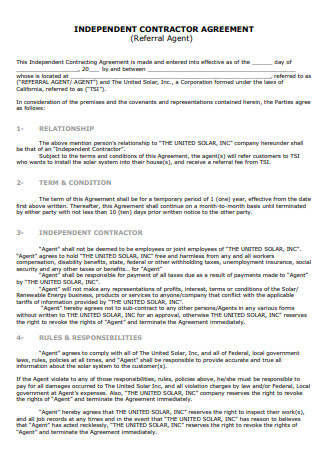
Referral Agent Agreement
download now -

Agent and Broker Agreement
download now -
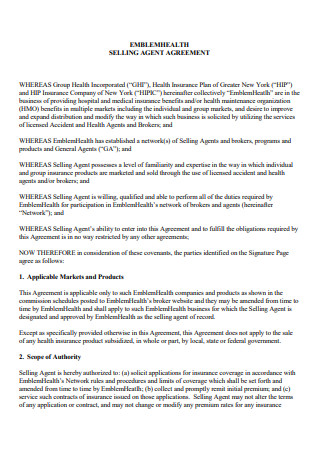
Selling Agent Agreement
download now -
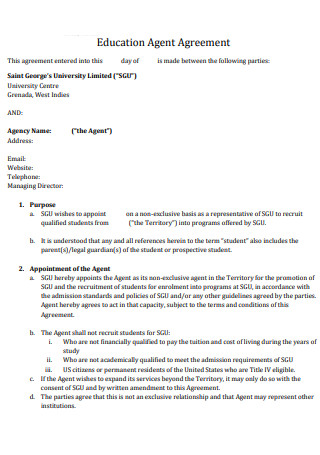
Education Agent Agreement
download now -
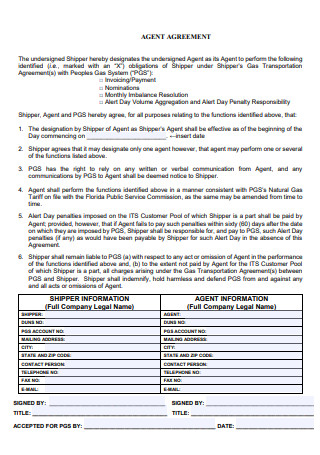
Formal Agent Agreement
download now -
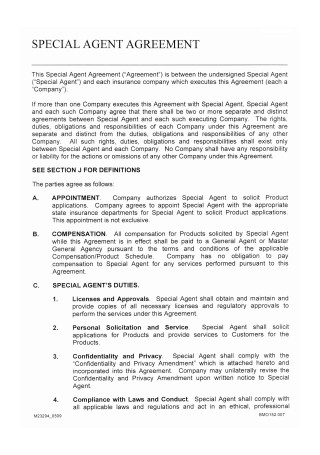
Special Agent Agreement
download now -
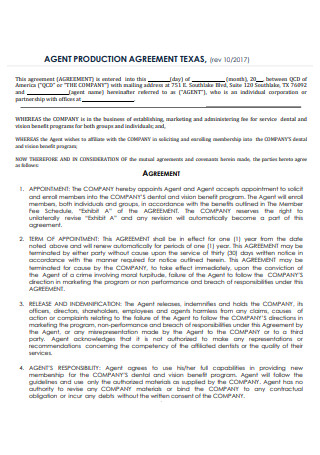
Agent Production Agreement
download now -
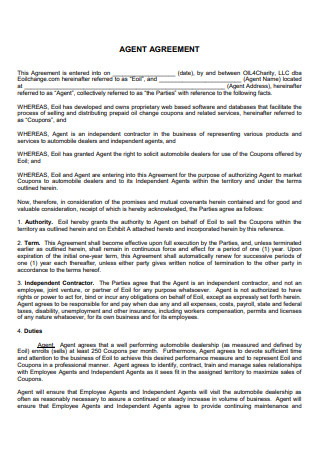
Printable Agent Agreement
download now -
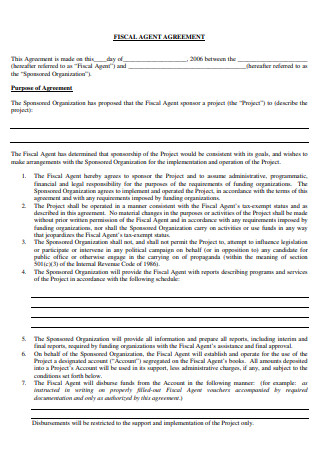
Fiscal Agent Agreement
download now -
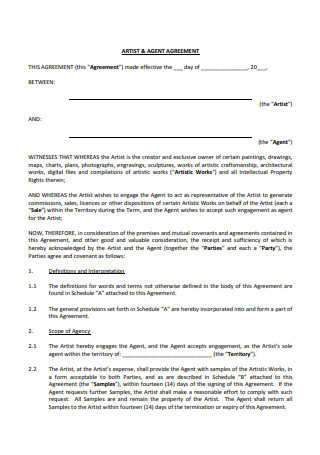
Artist and Agent Agreement
download now -
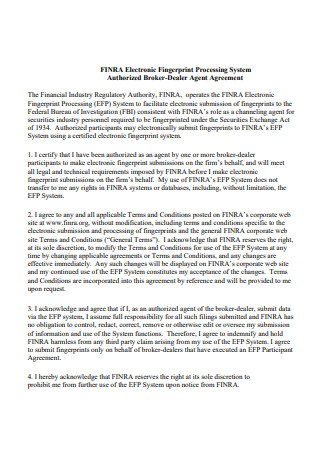
Authorized Broker Dealer Agent Agreement
download now -
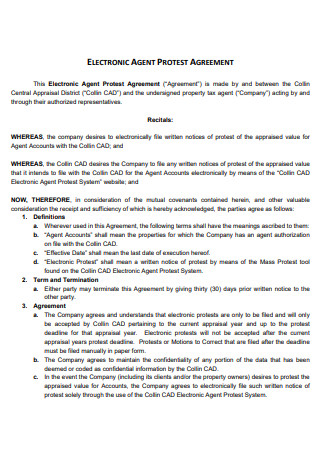
Electronic Agent Agreement
download now -
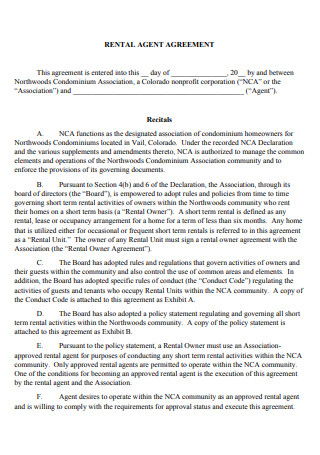
Rental Agent Agreement
download now -
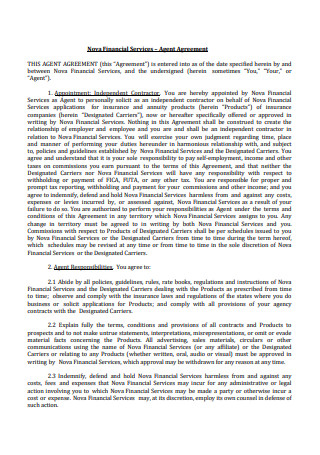
Financial Services Agent Agreement
download now -
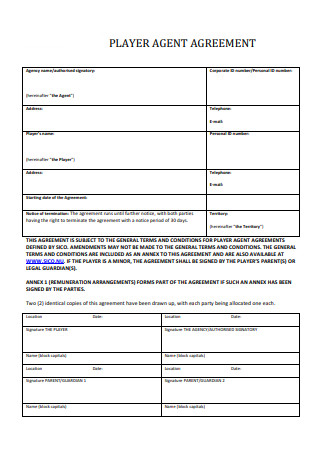
Player Agent Agreement
download now -
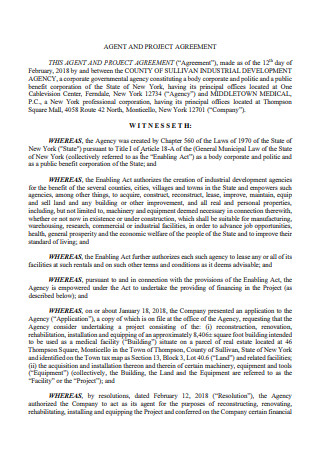
Agent and Project Agreement
download now -
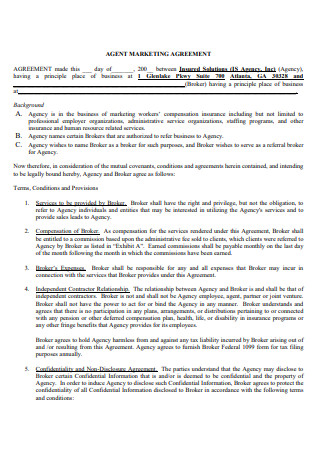
Agent Marketing Agreement
download now -
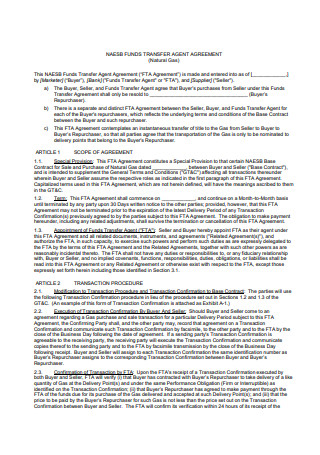
Funds Transfer Agent Agreement
download now -
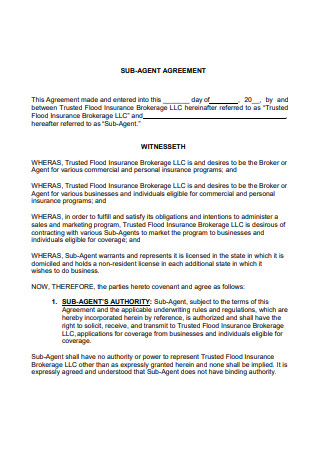
Sub Agent Agreement
download now -
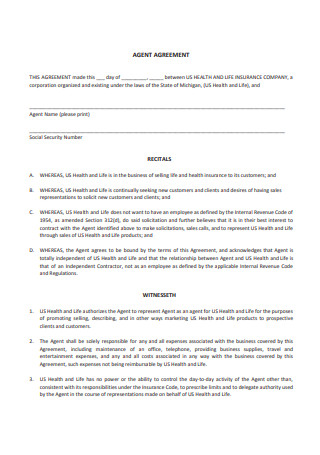
Agent Agreement Example
download now -
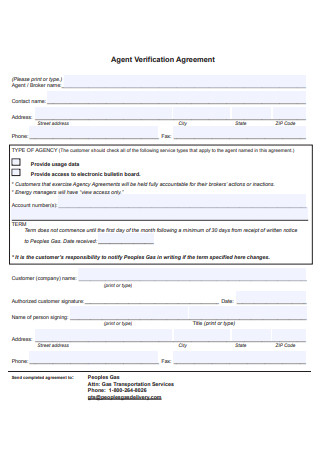
Agent Verification Agreement
download now -
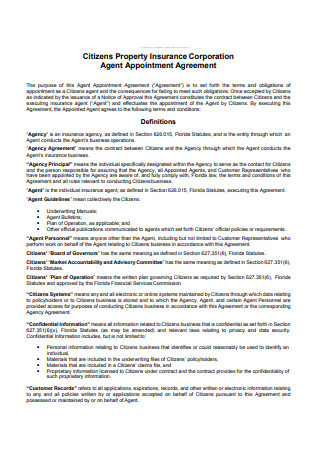
Agent Appointment Agreement
download now -
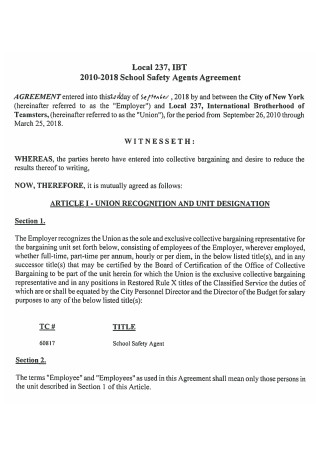
School Safety Agent Agreement
download now -
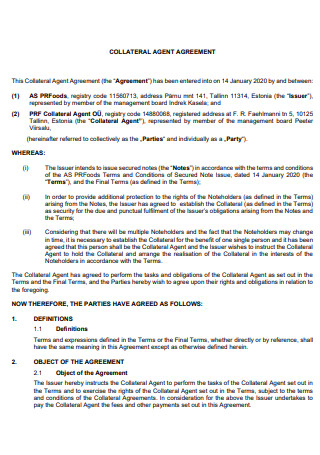
Collateral Agent Agreement
download now -
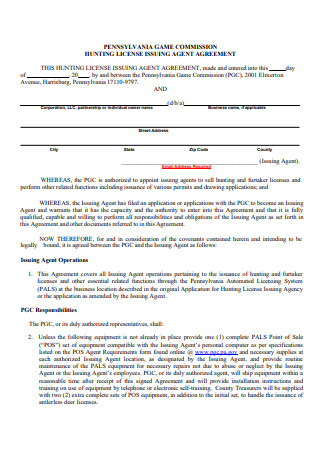
License Issuing Agent Agreement
download now -
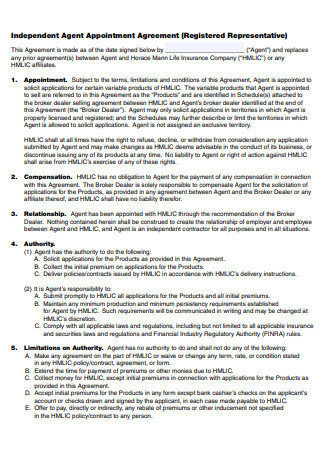
Independent Agent Appointment Agreement
download now -
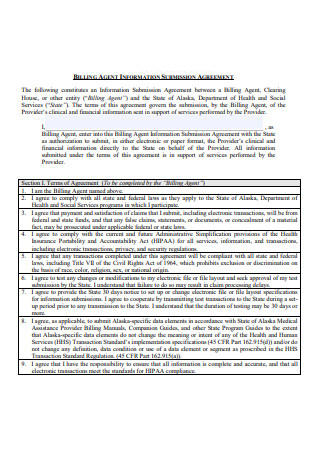
Building Agent Agreement
download now -
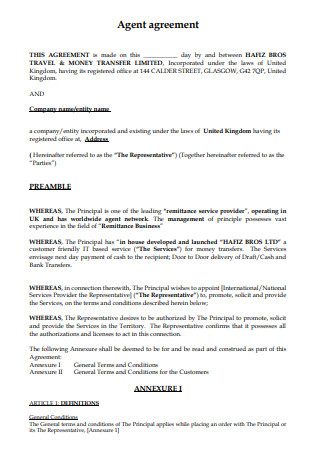
Simple Agent Agreement
download now -
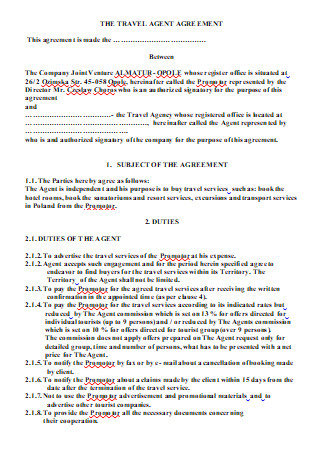
Travel Agent Agreement
download now -
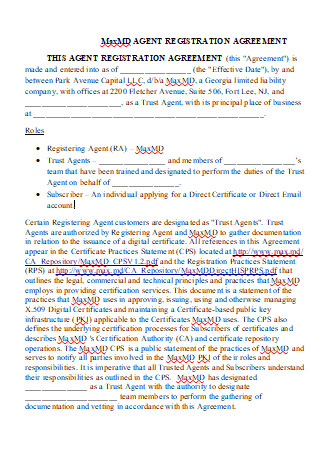
Agent Registration Agreement
download now -
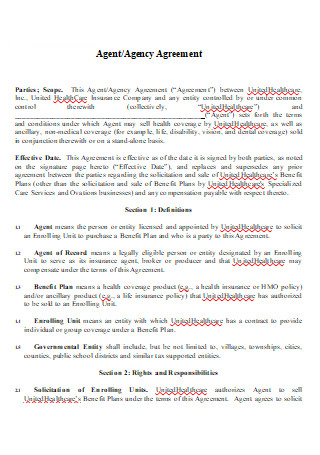
Agent Agency Agreement
download now
What Is an Agent Agreement?
An agent agreement is a formal agreement made between an agent and a principal. In a typical arrangement, the former acts as a liaison or middleman for the latter in business affairs and other related transactions.
According to online data published by the U.S. Bureau of Labor Statistics, the top 3 paying states for agents and business managers of talent (i.e., artists, performers, athletes) were North Carolina, Connecticut and Ohio. As of May 2020, North Carolina’s annual mean wage was estimated at $117,880. Despite having the highest employment level of agents, New York only came in 5th place with an annual mean wage of $101,550.
Types of Agents
There can be many different kinds of agents across various industries or fields. And depending on the type of agent, tasks and functions may vary in a nuanced way too. But the basic expectation of an agent is to act as the authorized representative of his or her principal, whether it be an individual or a company. The following are common examples of the various kinds of agents.
Why People Hire Agents
People may feel the need to hire an agent based on several reasons. Although each may have his or her own personal reason, there are a few fundamental and universal grounds for engaging the services of an agent. The following examples are just some of those major reasons.
How to Create an Agent Agreement
The content of an agent agreement will highly depend on the nature of the relationship between the two parties involved. However, there is a certain structure that can be followed in creating a basic agreement. If you’re looking for quick and easy templates, browse the selection above and choose a template that suits your needs. Once you have picked one, follow the simple steps below.
Step 1: Identify the Parties
The first step in crafting any kind of agreement is establishing the parties entering into the contract. Whether it is an individual or a firm, make their identities known by providing the complete names. Although optional, you may include their complete addresses as well. Formally introducing the parties makes for a standard opening statement in your contract agreement. This section should be clear, brief, and straight to the point. Assigning a title to either party is required too. Generally, the authorized representative is referred to as the agent; while the party being represented is called the principal.
Step 2: Define the Roles
An important part of an agent agreement is the definition and delineation of tasks. Expectations must be set and responsibilities must be clarified. Since the role of an agent would vary across different industries, duties and functions should be clearly stated and described within the agreement. To make it more organized, you can enumerate each function one by one similar to a job description format. You can use bullet points or numbers to properly distinguish one task from the other. Knowing the obligations and responsibilities of each party is key to managing expectations.
Step 3: Establish the Terms
After defining the roles and responsibilities, set the terms and conditions that will serve as a guide to conducting the agreement. Just as previously mentioned, drawing provisions or creating stipulations will greatly help inform expectations on both sides. Further, you want to make certain it is a comprehensive list of terms and conditions. Everything ought to be covered- from payment terms, confidentiality, liability, scope of work, limitations, work hours, to termination of contract. The format of this section would also depend on you. Ideally, each specific condition is stated individually in paragraph form.
Step 4: Formalize the Agreement
The last step is formalizing the agreement contract. Once you have established all the conditions or provisions, you need to reaffirm that both parties are amenable to the terms of agreement. A simple declarative statement confirming the agreement of the agent and principal should be enough. Leave an adequate amount of space at the end of the contract for both parties to affix their name, signature, and date.
FAQs
What is the purpose of an agency agreement?
The purpose of an agency agreement is to establish guidelines for conducting a business relationship between a principal and an agent or agency. It is a formal agreement that sets the tone for the partnership. Ideally, it is also meant to protect the interest of both parties.
What do you mean by agent contracts?
An agent contract is a formal and legal contract made between an agent and a principal. The principal authorizes the agent to conduct business affairs and transactions on his or her behalf.
What is an agency agreement in real estate?
In real estate, an agency agreement is a written agreement between a client (i.e., buyer) and an agent or firm. The latter acts as the authorized liaison between the client and developer (the company or individual selling the real estate).
An agent can be called many things including an intermediary and middleman. But to ensure a healthy working relationship between an agent and his or her principal, there must be a sound and coherent agent agreement contract. Browse the sample templates above to start customizing your own agreement today!
